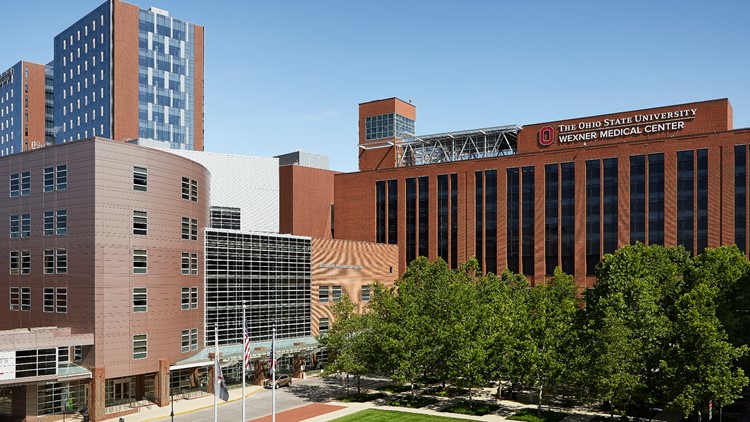COLUMBUS, Ohio — The Ohio State University Wexner Medical Center has been designated as a Comprehensive Care Center by the Parkinson’s Foundation Global Care Network.
The organization’s designation recognizes 10 medical centers across the country that excel in utilizing a team to provide the highest level of evidence-based care centered around the patient. The organization adds that the designated medical centers demonstrate leadership in professional training and conduct patient education and community outreach.
Wexner Medical Center is the only hospital system in Ohio to be recognized as a Parkinson’s Foundation Comprehensive Care Center. It was recognized for its approach to treating patients with Parkinson’s with a team of neurologists who specialize in movement disorders and collaborate with mental health, speech, occupational and physical therapists.
“It’s a validation of our efforts and allows us to join the Parkinson’s Foundation’s Global Network, which is a consortium of centers worldwide that adheres to the highest standards of care for Parkinson’s disease patients. With this designation, we are dedicated to continuing to bring the most innovative, up-to-date treatments, research options and information to our PD community here in central Ohio and beyond,” said Ariane Park, MD, co-director of Ohio State’s Center for Parkinson’s and Movement Disorders.
“Patients who come here for treatment get access to many resources that extend beyond our center to support groups, community events and information on the Parkinson’s Foundation website,” said Pietro Mazzoni, MD, PhD, co-director of Ohio State’s Center for Parkinson’s Disease and Movement Disorders.
Parkinson’s disease affects nearly one million Americans and 10 million worldwide. It is the second-most common neurodegenerative disease after Alzheimer’s and the 14th-leading cause of death in the United States, according to Wexner Medical Center.
The incurable disease is associated with a progressive loss of motor control such as shaking or tremors at rest and lack of facial expression. Patients also experience non-motor symptoms including depression and anxiety. Each year, about 60,000 people are diagnosed with Parkinson’s disease in the United States.



